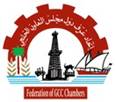 |
 |
 |
 |
Project Management and Planning |
| In Strategic Partnership with Federation of GCC Chambers |
 |
 |
| |
 |
| |
|
| |
| Where: |
Sheraton Hotel,
Abu Dhabi, UAE |
| |
| When: |
| 18 - 21 April |
| |
| Duration: |
| 4 Days |
| |
| Price: |
| US $ 2,400 |
| |
| Led By: |
| Peter J Malvey |
| |
|
|
 |
|
 |
Peter J Malvey has over 24 years experience in international executive programme, project, risk, change management and consulting leadership (US, Europe, Africa, Middle East, Asia) in a variety of industries, venues and market segments. He has design, recommend and implement effective tactical and strategic solutions with an emphasis on organizational, operational, management, systems, collaboration systems and decision support environments, excellence and business development, growth and practices. |
Peter J Malvey
|
 |
| Target Audience: |
| This course is for anyone that has to produce and a deliverable in a project context. Typical roles in the organization that should attend this course are Project Managers, Project Leaders and Team Leaders. |
 |
| Seminar Overview: |
The application of project management principles enables senior executives to:
- Establish measures of success
- Enable customer focus and alignment
- Quantify value commensurate with cost
- Optimize the use of organizational resources
- Incorporate quality principles
- Put strategic plans into practice
- Ensure fast time-to-market
Focus & Purpose:
The focus and purpose of this course is to convey skills and competence. Participants will practice and apply key project management skills. |

|
| Topics: |
|
Definitions and Concepts
The purpose of this section is to ensure that all participants have an adequate understanding of the discipline of project management. Questions like What is a project?, What is project management?, What is project success?, Why do projects fail? are asked and an answer is provided. Project management is contrasted with functional management and the role of the project manager in an organization is explored and explained
Project Planning
Project planning is addressed from two angles, i.e. a general view and specific skills. Under the general view the rationale for life cycle phases are explained and different planning approaches are discussed. The section on specific skills focuses in detail on each of the following topics:
- project charter - the what and why of the project charter.
- work breakdown structures - the what and why of the WBS, followed by a detailed risk assessment on the WBS and guidelines of how to perform resource and responsibility allocations.
- estimating - understanding estimating; typical estimating errors and formal estimating techniques.
- scheduling - scheduling techniques; critical path, EST and LST; when and how to use these techniques.
- costing - translating the planning information into financial terms.
Project Teams
Dealing with people in a team context is part and parcel of project management. Through a series of practical exercises and case studies participants are exposed to various team structures, team formation phases and team building exercises.
Project Organization
There is more to project management than scheduling techniques. Different organization structures have been developed to cater for the needs of project management, spanning the range from the functional organization to the pure project organizations. Delegates are made aware of how the different organizational structures are bound to influence their project.
Project Control
Project planning will typically take place before the project is initiated, but once the project has started, planning and control will form a continuous cycle until the completion of the project. Major focus should be applied to control over the quality of the work performed as well as over the project schedule, i.e. how well are the project actual progressing against the plan. Techniques to enable both these modes of control are explained. |
 |
| Seminar Structure: |
The course material on each of the above topics consists of the following:
• purpose and objectives
• opening incident - a case study on the topic helping students to identify the key issues that will be addressed
• lecturing and participative discussions
• application exercises - giving participants the opportunity to apply the concepts to their working environment
|
 |
|
|
|
 |
 |
|
|
 |
| |
|